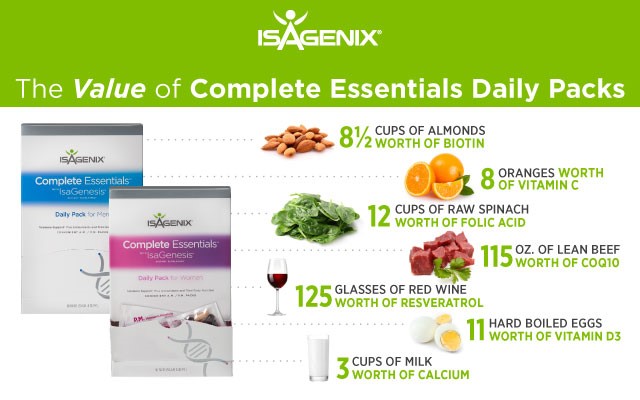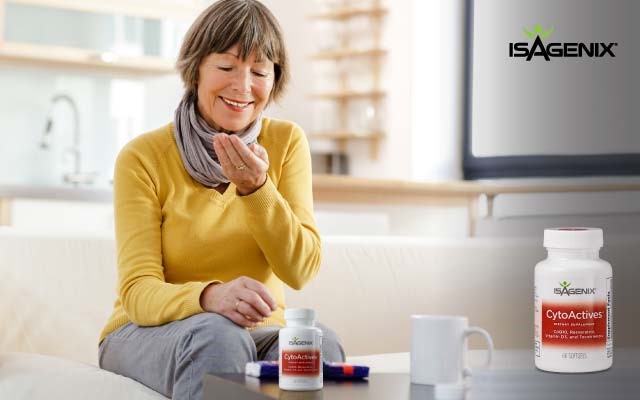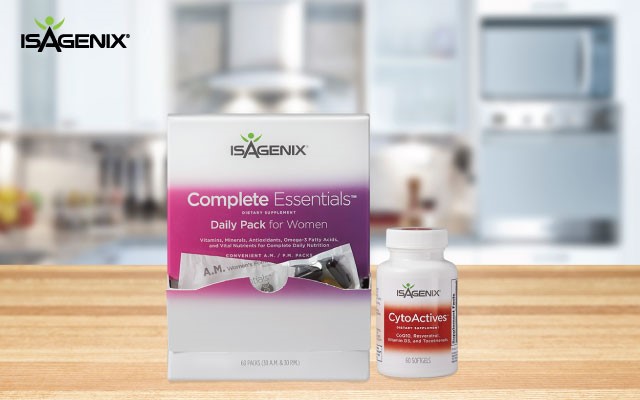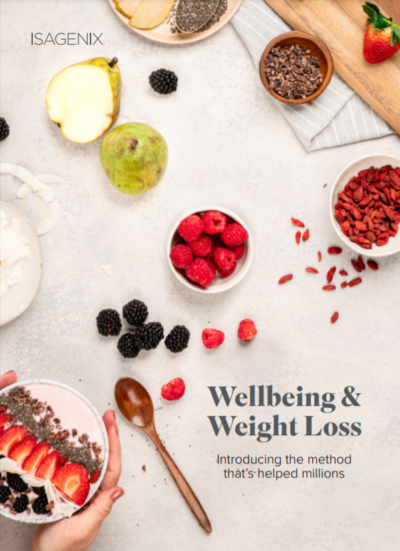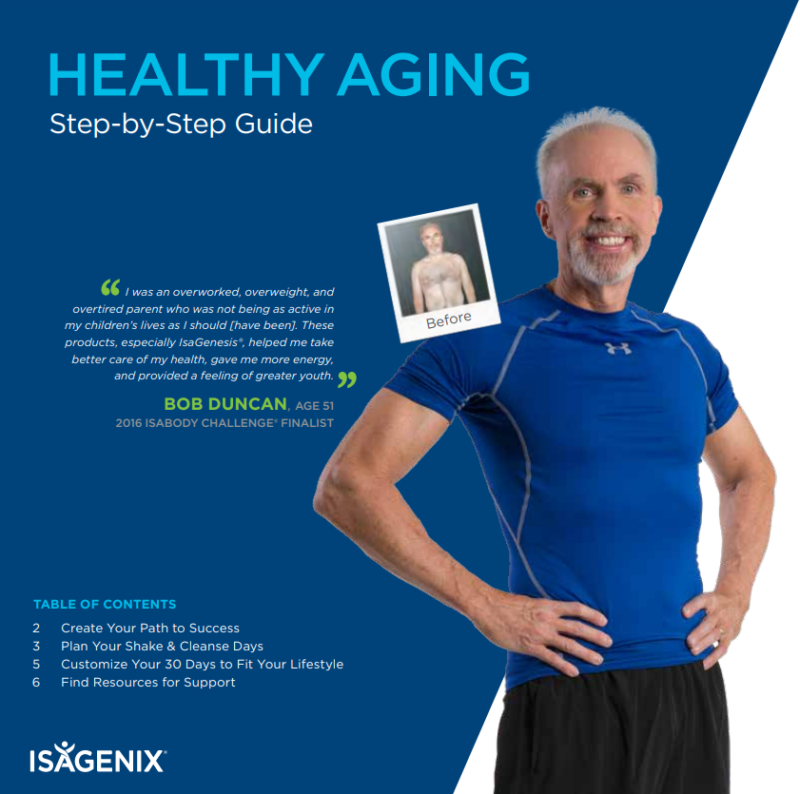HEALTHY AGING NEWS
How Much Nutritional Value Is in Complete Essentials Daily Pack?
When taken daily, Complete Essentials™ Daily Pack gives you the equivalent amount of vitamin C found in eight oranges, the chromium found 10 cups of broccoli, the magnesium in four dark chocolate squares and the biotin in a half cup of almonds.
Podcast: CytoActives™ Updates
Isagenix Manager of Research and Science Dr. Eric Gumpricht discusses the newly released formulations of both the Complete Essentials™ Daily Pack and CytoActives™, including what has changed and the breakthrough science behind it.
Tocotrienols: The New Vitamin E for Cellular Health
As part of new CytoActives, formerly Ageless Actives™, Isagenix has now added tocotrienols. So what are tocotrienols and why is the Isagenix Research and Science team so enthusiastic to incorporate them into a product designed to support cellular health?
FAQ: Learn What’s New In Complete Essentials Daily Pack and Reformulated CytoActives
Because of our continuing commitment to keep up with the latest in ever-developing nutritional research, Isagenix has made a few recent updates to Ageless Actives and Ageless Essentials Daily Pack.
How Much Vitamin D Should You Take in Winter Months?
It’s that time of year again when temperatures have dropped to their lowest, and it is likely your vitamin D levels have, too. When the sun’s rays enter the Earth’s atmosphere at too much of an angle as happens during the winter season, UVB rays are blocked off, and your skin can’t produce vitamin D without them.
Study: Product B IsaGenesis Supports Healthy Aging
Product B® IsaGenesis® taken on a daily basis boosts the concentration of an enzyme that is regarded as a biomarker of healthy aging, according to a study conducted at Arizona State University (ASU).*





